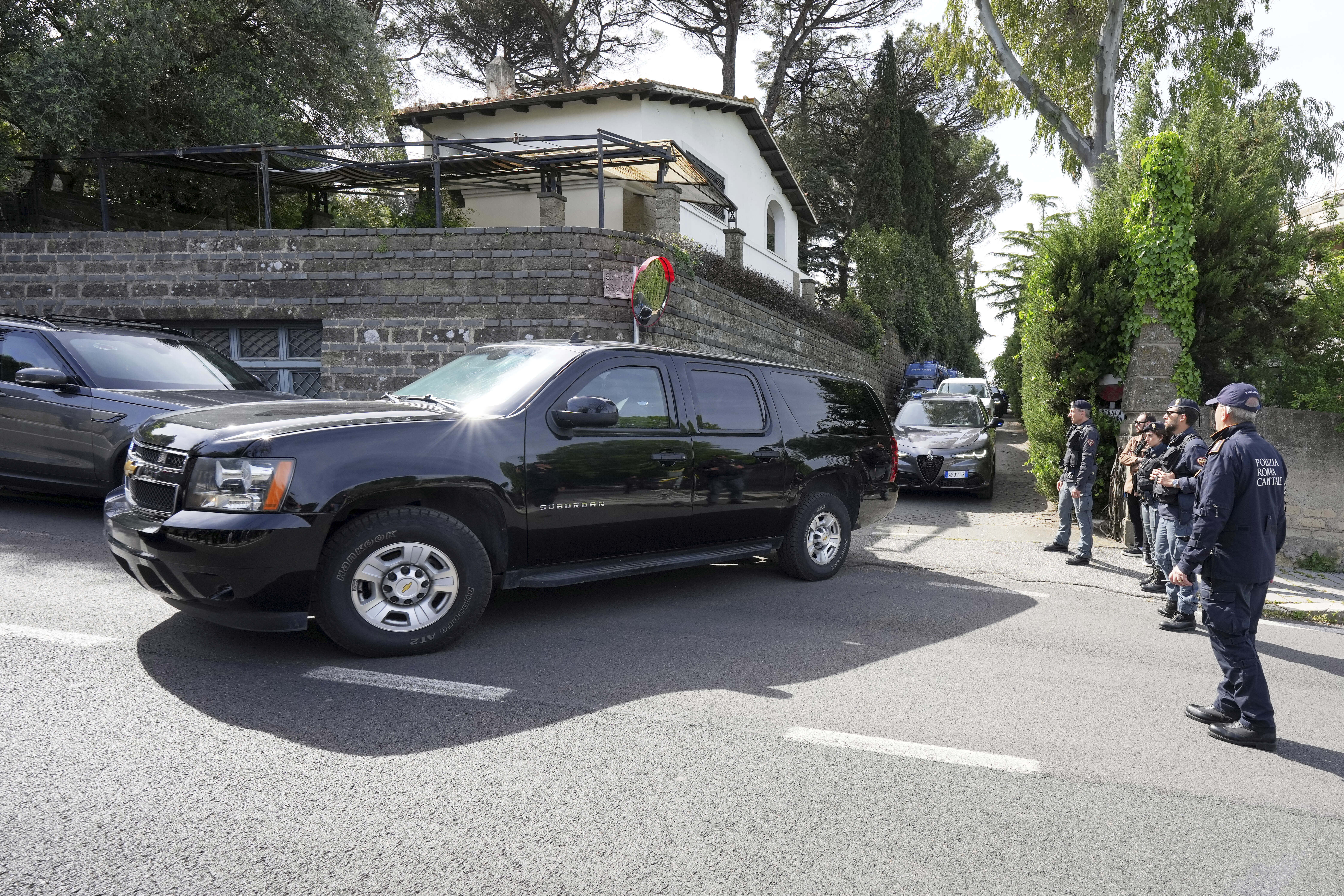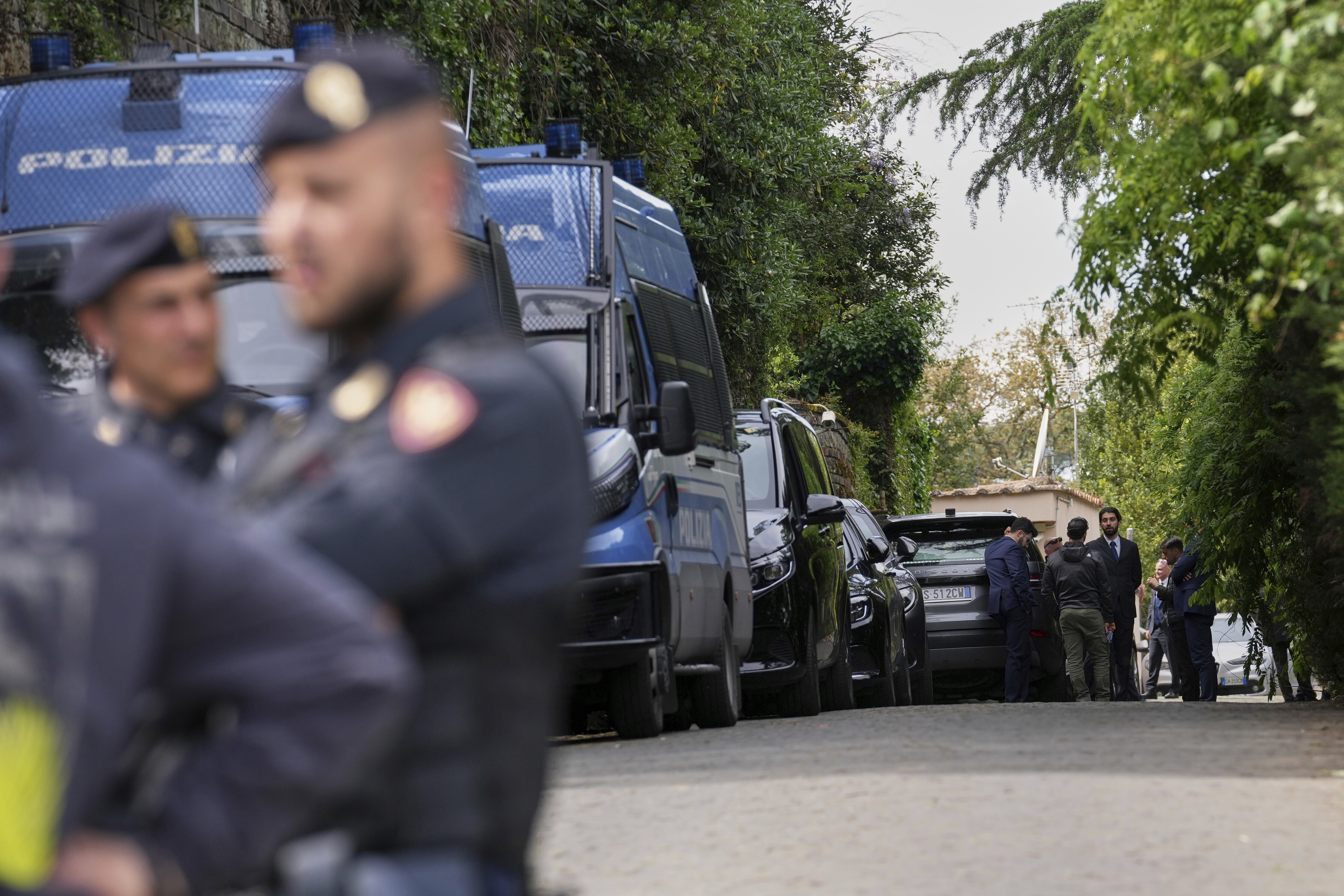
The "constructive" negotiations between Iran and the United States on Saturday in Rome will advance to the "expert level" on Wednesday in Oman apart from resuming discussions this coming Saturday, Iranian officials said, signaling mutual understanding on the framework.
Rome talks at the Omani embassy marked a historic moment, given the decades of enmity between the two sides since 1979, as US President Donald Trump seeks to secure a rapid deal to halt Iran's nuclear development program while threatening military action against it.
Iranian Foreign Minister Abbas Araghchi described the four-hour meeting as "good and forward-moving", saying negotiations would move to the next phase with technical talks held at the "expert level" on Wednesday in Oman.
ALSO READ: Iran's foreign minister says indirect talks with US ‘constructive’
"This time we managed to reach a better understanding on a series of principles and goals," he told Iran's state TV after the talks.
On Saturday, Araghchi and US Special Envoy to the Middle East Steve Witkoff spoke indirectly — with Omani Foreign Minister Badr al-Busaidi shuttling between them in different rooms. The two would conduct a third round of indirect talks on Saturday back in Oman's capital Muscat and discuss the result of the experts' work on a framework for a potential new deal.
A senior US official later confirmed the "very good progress "and that the two sides agreed to meet again this week. The Rome meeting followed a preliminary round in Muscat on April 12.
ALSO READ: Iran expects IAEA to maintain neutrality in Teheran-Washington talks
Busaidi appreciated "the constructive approach" of both sides and said the talks are gaining momentum, reported the Islamic Republic News Agency of Iran.
A spokesperson for Oman's Foreign Ministry said that dialogue and clear communication remain essential to achieving "a mutually credible agreement and understanding for the benefit of all concerned regionally and internationally".
Iran seeks no delay
Iran's Deputy Foreign Minister Kazem Gharibabadi said on Sunday that the country is serious in its indirect negotiations with the United States and wants no delay in the diplomatic process.
Gharibabadi made the remarks at a meeting with the members of the parliament's National Security and Foreign Policy Committee in Teheran, the official news agency IRNA quoted the committee's spokesperson, Ebrahim Rezaei, as saying.

Gharibabadi said that Teheran and Washington, during their second round of indirect talks in the Italian capital Rome on Saturday, discussed and agreed on "the overall framework, agenda, and (subsequent) technical talks."
ALSO READ: Iran says nuclear issue, sanctions focus of indirect talks with US in Oman
According to Rezaei, the deputy foreign minister has stressed that "all sanctions (on Iran) should be lifted in a way that benefits the Iranian people economically," while emphasizing that Teheran would not negotiate on its right to enrich uranium, which he said is "among the red lines."
The talks came after Trump wrote to Iran's Supreme Leader Ali Khamenei, requesting that negotiations be opened into a deal between Teheran and Washington. Trump in 2018 unilaterally withdrew the US from a 2015 six-nation nuclear agreement with Iran.
A senior Iranian official on Friday listed the country's red lines as never agreeing to dismantle its uranium enriching centrifuges, halt enrichment altogether or reduce its enriched uranium stockpile below levels agreed in the 2015 deal, IRNA reported.
ALSO READ: Iran official: Teheran uranium enrichment principle non-negotiable
Before the Rome talks, Ali Shamkhani, an adviser to Khamenei, wrote on X that Iran would not accept giving up its enrichment program as with Libya, or agreeing to using uranium enriched abroad for its program. "Iran has come for a balanced agreement, not a surrender," he said.
Araghchi said a deal was "likely "if Washington refrained from making excessive and unrealistic demands, without elaborating.
Ties with Saudi Arabia
Earlier, while Araghchi met Russia's president and foreign minister in Moscow on Thursday and Friday, Saudi Arabia's defense minister, Prince Khalid bin Salman, visited Teheran and delivered a personal message from the kingdom to Khamenei. He also met Iran's President Masoud Pezeshkian.
Iran's Ambassador to Saudi Arabia Alireza Enayati described the visit of Khalid as a key milestone in deepening regional cooperation and advancing Iran-Saudi Arabia relations.
In an interview with news website Asharq Al-Awsat, he said the region is in urgent need of greater solidarity and collaboration among countries — particularly between Teheran and Riyadh. "Security and stability in the region can only be achieved through joint efforts by all regional nations. It's time they come together and shape their future with their own hands," he said.
READ MORE: President: Iran ready to expand all-out cooperation with Saudi Arabia
Meanwhile, Israeli Prime Minister Benjamin Netanyahu affirmed his commitment on Saturday to preventing Iran from obtaining nuclear weapons, declaring he would not waver in that effort.
"I'm committed to preventing Iran from obtaining nuclear weapons. I will not give up on this, I will not let go of it, and I will not retreat from it — not even by a millimeter," he said in a televised statement.
Xinhua and Agencies contributed to this story.


